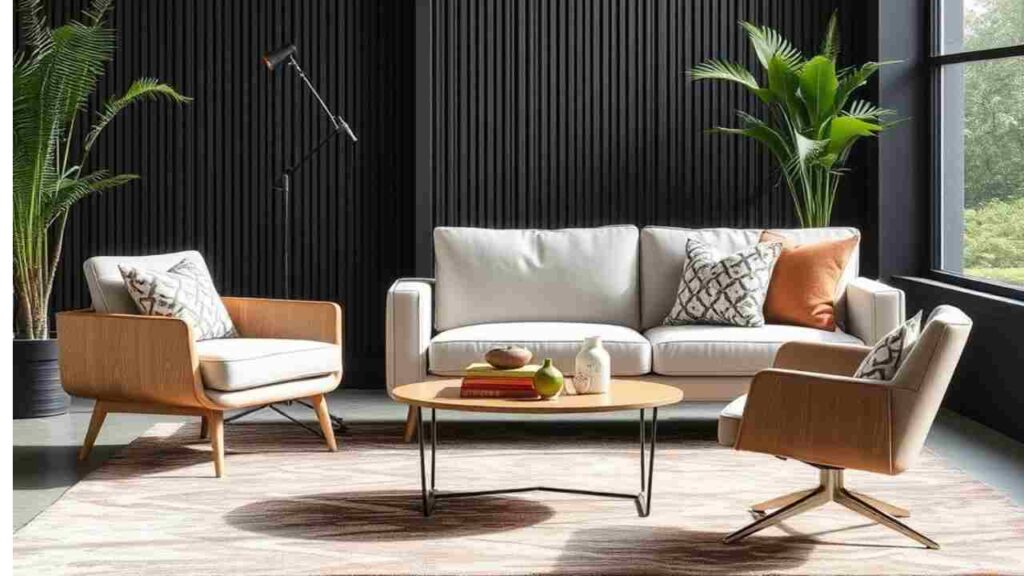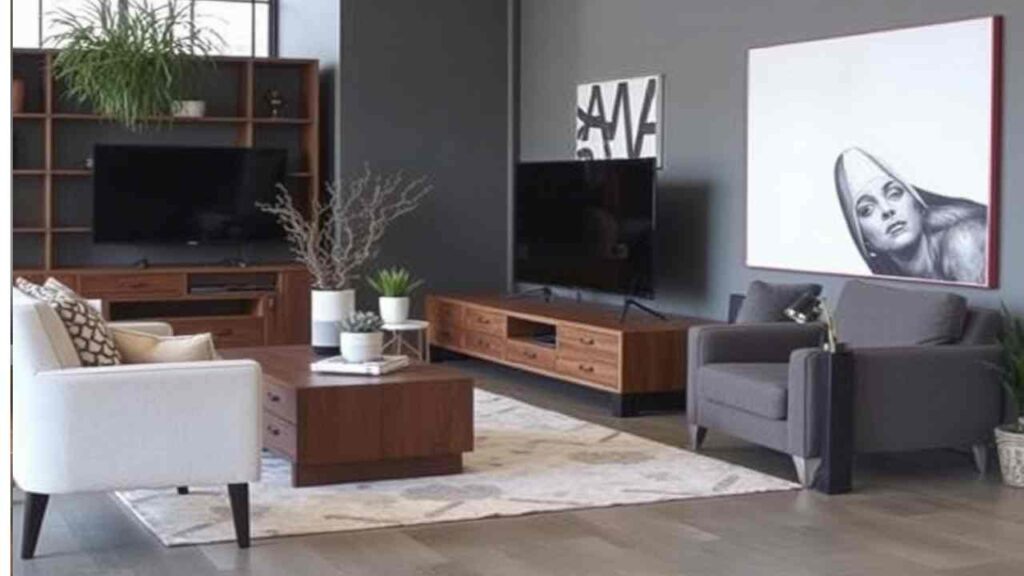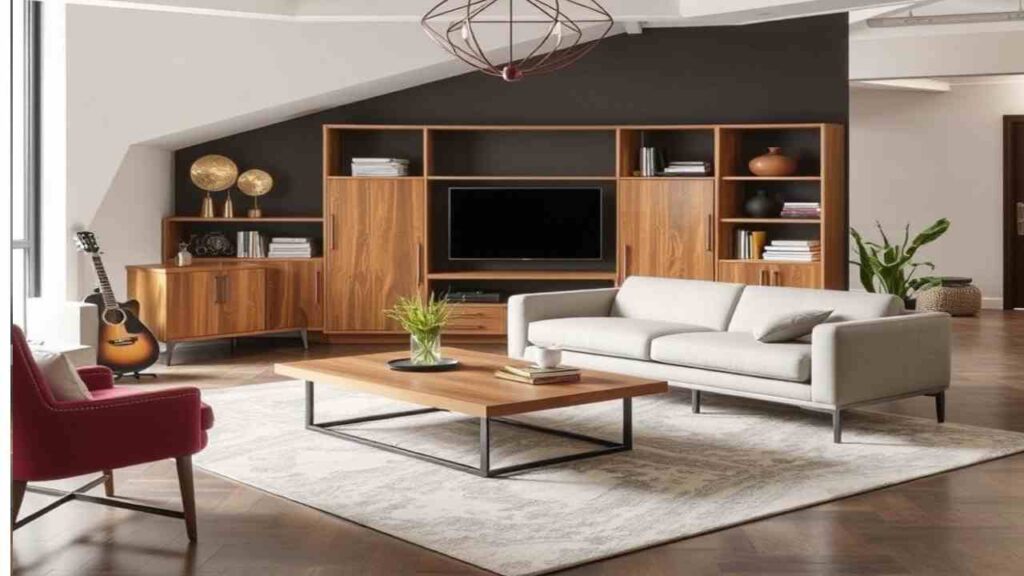Contract-grade furniture, also known as commercial-grade furniture, is specifically designed to meet the demands of high-traffic environments. It’s a vital component for businesses that require durable, safe, and aesthetically appealing furnishings to withstand the rigors of frequent use. Below, we’ll explore the key characteristics, target audience, usage scenarios, and comparisons to residential furniture, providing a comprehensive understanding of contract-grade furniture.
Benefits of Using Contract-Grade Furniture
There are several advantages to choosing contract-grade furniture for businesses. First and foremost, durability is a crucial benefit—these furnishings are constructed with robust materials and superior craftsmanship to endure the wear and tear of daily use in busy settings. This results in a longer lifespan compared to standard residential furniture, ultimately providing cost savings by minimizing the need for frequent replacements. Additionally, contract-grade furniture must meet stringent safety standards, ensuring the well-being of employees and customers. This type of furniture also offers versatile design options, allowing businesses to create an inviting, professional atmosphere that aligns with their brand image. Furthermore, many manufacturers of contract-grade furniture provide customization options, enabling companies to select styles, colors, and fabrics that match their specific needs and preferences.
Characteristics
Designed for Commercial Use: Crafted to endure the wear and tear of busy environments such as hotels, offices, and restaurants.

Durability and Safety Standards: Meets or exceeds industry standards, ensuring that each piece is safe and long-lasting.
High-Quality Materials: Constructed with robust materials to handle frequent use without compromising on style or performance.
Customizable Options: Often customizable to fit the specific needs and aesthetic of a commercial space.
Extended Warranties: Typically come with longer warranties, reflecting the confidence manufacturers have in their product’s durability.
Versatile Styles and Designs: Available in a wide range of styles to suit different commercial settings, from modern to classic.
Audience
Contract-grade furniture is particularly relevant for:
Interior Designers: Professionals looking to furnish commercial spaces with pieces that combine style and durability.
Business Owners: Those who need reliable furniture that reflects their brand while withstanding heavy customer use.
Facility Managers: Individuals responsible for maintaining functional and attractive environments in various industries.
Common Industries That Use Contract-Grade Furniture
Several industries heavily rely on contract-grade furniture because they need durable, aesthetically pleasing furnishings that can withstand constant use.

Hospitality Industry: Hotels, resorts, and restaurants see significant foot traffic and require furniture that maintains both form and function. Contract-grade furniture provides the durability and design flexibility needed for these vibrant environments.
Healthcare Facilities: Hospitals, clinics, and other healthcare establishments need furniture that complies with safety and hygiene standards. Contract grade options ensure patient and staff comfort while supporting intense cleaning and sanitation processes.
Corporate Offices: As workspaces evolve, businesses prioritize furniture that fosters productivity and collaboration. Contract-grade pieces allow for ergonomic comfort and aesthetic customization, fitting diverse corporate cultures and office layouts.
Educational Institutions: Schools, colleges, and universities use contract-grade furniture to furnish classrooms, libraries, and common areas with pieces that can withstand frequent student use while meeting safety standards.
Retail Spaces: Stores and shopping centers incorporate contract-grade furniture to enhance customer experience and brand image while ensuring the longevity of their displays and seating areas.
Hotels: For lobby seating, dining areas, and guest rooms, providing comfort and durability.
Restaurants and Cafes: These are stylish and resilient seating and tables that can handle daily customer flow.
Office Spaces: For workstations, meeting rooms, and common areas, balancing functionality with aesthetics.
Comparison with Residential Furniture

Design
Contract Grade: Focuses on both functionality and aesthetics tailored to specific commercial needs.
Residential: Prioritizes personal comfort and style, often less suited to high-traffic environments.
Cost
Contract Grade: Generally higher upfront cost due to premium materials and construction quality.
Residential: More affordable initially but may require frequent replacements.
Durability
Contract Grade: Built for heavy use, supported by more extended warranties, and meeting stringent industry standards.
Residential: Designed for personal use, focusing on comfort rather than durability in high-use settings.
Frequently Asked Questions
What materials are commonly used in contract-grade furniture?
Contract-grade furniture often uses materials like solid wood, metal, high-pressure laminates, and commercial-grade fabrics that meet rigorous durability and safety standards. These materials are chosen for their ability to withstand heavy use while maintaining aesthetic appeal.

How does contract-grade furniture adhere to safety standards?
Contract-grade furniture adheres to industry safety standards, such as BIFMA (Business and Institutional Furniture Manufacturer’s Association) or ANSI (American National Standards Institute) certifications. These standards ensure that the furniture is safe and reliable for use in commercial settings.
Can contract-grade furniture be customized?
Yes, many manufacturers offer customization options for contract-grade furniture, allowing businesses to tailor pieces to fit their specific aesthetic and functional requirements. This includes options for materials, finishes, colors, and overall design.
Is contract-grade furniture more expensive than residential furniture?
Typically, contract-grade furniture has a higher upfront cost due to its premium-quality materials and construction designed for long-term use. However, the investment can be more cost-effective over time due to its longevity and reduced need for frequent replacements.
What is the typical warranty period for contract-grade furniture?
Contract-grade furniture usually comes with extended warranties, often ranging from 5 to 10 years or more, reflecting the manufacturer’s confidence in its durability and long-term performance.
How do I choose the right contract-grade furniture for my business?
When selecting contract-grade furniture, consider factors such as usage requirements, brand aesthetics, durability, compliance with safety standards, and the available customization options to ensure that the furniture meets both your practical needs and design preferences.
conclusion
Contract-grade furniture is an essential investment for businesses seeking lasting, reliable furnishings that enhance their environment’s functionality and style. Whether you’re an interior designer, business owner, or facility manager, understanding the value and applications of contract-grade furniture can help you make informed decisions for your space. Explore our range of options to find the perfect fit for your commercial needs!















